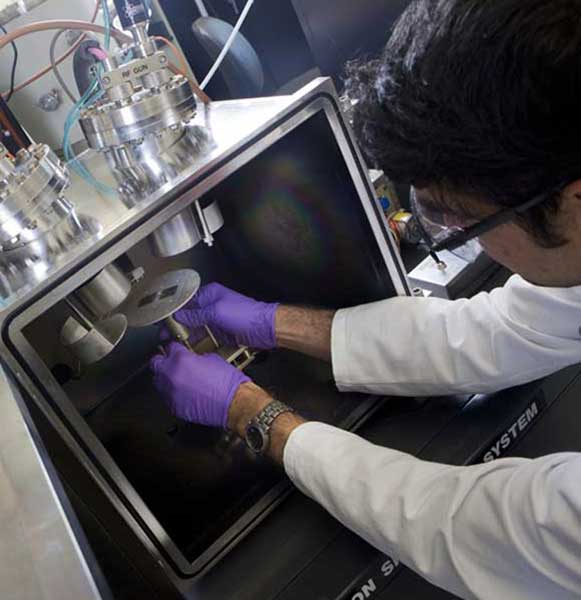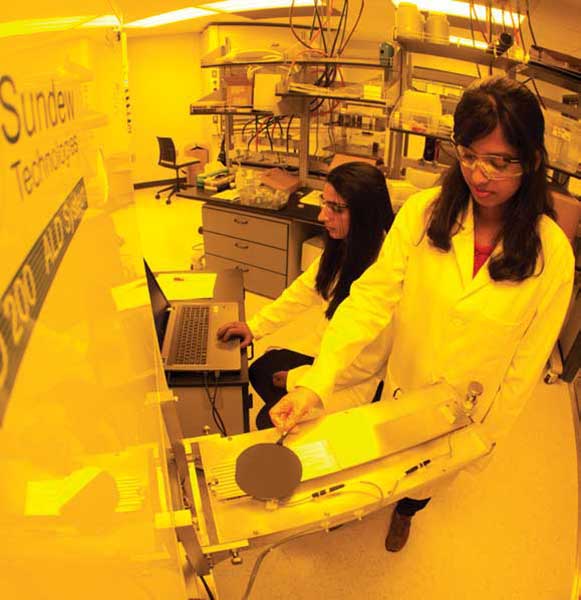Binghamton University is at the forefront of addressing our world's energy challenges. Our experts have demonstrated success with solar-cell design, thin-film packaging and concept-to-commercialization prototyping. This talent comes together in our Center for Autonomous Solar Power (CASP).
Formed in 2008, CASP aims to reduce the cost of solar power and enhance energy efficiency —bridging the gap between technology and commercialization.
Sustainability is a key requirement if solar energy is to emerge as a major energy source in the future. Current solar power systems — generally based on expensive, rigid, fragile silicon solar cells — have high fabrication and installation costs. Newer technologies using thin-film solar cells have the potential for lower costs, but still lag in the worldwide market due to cost-to-efficiency ratios.
CASP, a multi-disciplinary research center, functions as part of Binghamton University's S3IP, a New York State Center of Excellence. Building on Binghamton's expertise in the Center for Advanced Microelectronics Manufacturing (CAMM), Institute for Materials Research (IMR) and Integrated Electronics Engineering Center (IEEC), CASP is developing thin film solar cells made from abundant and non-toxic elements. Working with next-generation nanotechnologies, CASP's flexible solar cells will use sustainable materials and green manufacturing methods.
From the interim director
Research

Learn More
Facilities

learn more


